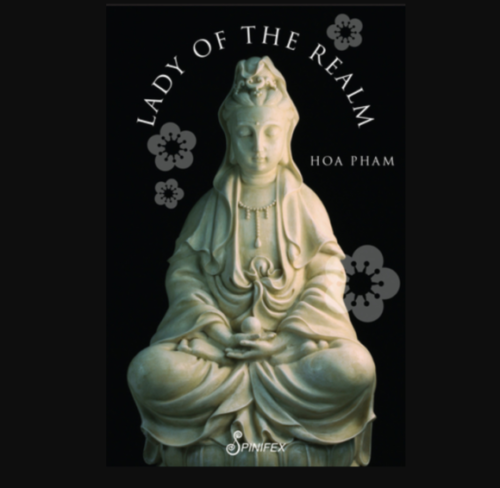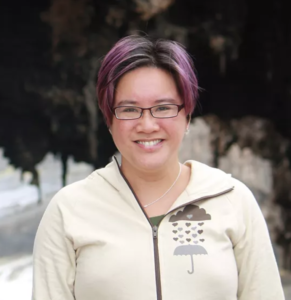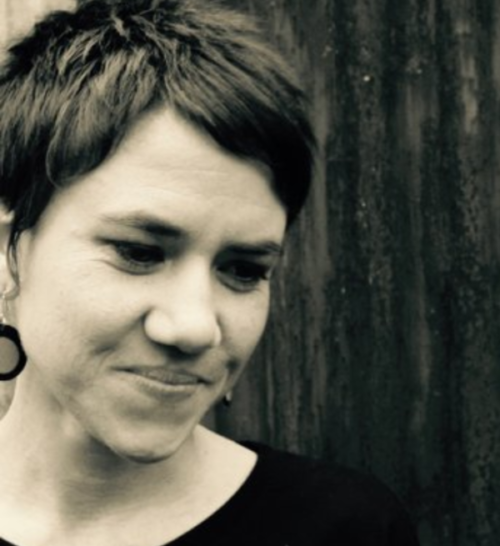
Hoa Pham – Author, Playwright, Pioneer
 Hoa Pham is an author, playwright and psychologist. Her novella, Wave (2015), was translated into Vietnamese by Phương Nam, a Vietnamese publishing house. The Other Shore (2014) won the Vive La Novella Prize. The Lady of the Realm (2017) is her latest novel and is a historical fiction set in Vietnam from the 1950s to the present day. Hoa is also the founder of Peril, an online Asian-Australian arts and culture magazine.
Hoa Pham is an author, playwright and psychologist. Her novella, Wave (2015), was translated into Vietnamese by Phương Nam, a Vietnamese publishing house. The Other Shore (2014) won the Vive La Novella Prize. The Lady of the Realm (2017) is her latest novel and is a historical fiction set in Vietnam from the 1950s to the present day. Hoa is also the founder of Peril, an online Asian-Australian arts and culture magazine.
I met Hoa when a mutual friend, also a writer, arranged for us to meet over lunch at a café so hip there were no hipsters. I had many great experiences in Melbourne and my afternoon with Hoa was in the top three; great food, great coffee, great conversation with two great Asian-Australian writers. Although they grew up on the other side of the country and their ancestors are from ethnic/dialect/regional groups different from mine, we had many similar experiences. The experience of being able to talk freely about our various experiences was liberating and imbued me with a sense of belonging. I also left with more of a sense of were I am positioned in the local literary landscape.
My first love is fiction because you can choose the ending.
 I’m just going to get straight into it and ask you the question that I’ve been asked. Where do you position yourself as an Australian writer, and as an Asian-Australian writer if at all? Has this has this changed since you first emerged as a writer? How has the Australian literary landscape changed since you were first published?
I’m just going to get straight into it and ask you the question that I’ve been asked. Where do you position yourself as an Australian writer, and as an Asian-Australian writer if at all? Has this has this changed since you first emerged as a writer? How has the Australian literary landscape changed since you were first published?
I think of myself as an Asian-Australian writer because it has been the way I have always been perceived in the literary world. Nowadays it is how I consciously position myself in relation to the Australian literary scene, I’m a diasporic writer, my work is transnational it is not just Australian it is Asian influenced as well. I think its only been quite recently i.e. in the last 20 years that Asian-Australian writers have been perceived as being Australian and contributing to the canon of Australian writing- for example, Nam Le is claimed to be an Australian writer, Chi Vu was included in the PEN Anthology of Australian Literature.
You’ve written short fiction, poetry, novels, and plays. Is it a conscious decision to tell a particular story in a specific genre or is the process quite instinctual? Is there one genre you prefer over another?
My first love is fiction because you can choose the ending. The ideas come along with the genre they want to be expressed in, I guess you could say it is instinctual.
What are you working on at the moment?
The historical fiction of Maribrynong Detention Centre site.
Why does representation matter? What role and responsibilities do you think writers have in perpetuating and disrupting these stereotypes when writing about minority groups?
Minority writers are often burdened with representation as a responsibility by white audiences. This responsibility should go both ways. All writers should be aware of representing the Other, no matter what that Other is, in an ethical way.
I’ve always viewed you as one of the pioneers of Asian-Australian literature because Vixen was the first book by an Asian-Australian that I saw on a local bookshelf. (I’m pretty sure you were the only author with a visibly ethnic name on that Angus and Robertson bookshelf) . If memory serves me right, I also saw your work in HQ [an excellent but now defunct magazine]. Then, you founded Peril. Where did the idea for Peril come from? What would be your response to those (both CALD and non-CALD) who view this as unnecessary?
I came up with Peril because in America there was an Asian-American literary space in the magazines Hyphen and Giant Robot and also in Canada’s Rice Paper. I wanted an Asian-Australian literary space and there wasn’t one in 2006. Now there are at least four magazines which is wonderful. To people who view this as unnecessary may want to look at the Australian publication history between 2006 and 2018 and the dearth of Asian-Australian publishing writing before Nam Le and Alice Pung.
Do you have a regular writing routine? If so what does it look like? On my days off I write a session in the mornings and a session in the early afternoons.
I’m learning Chinese at the moment and our homework this week is to write a page about why we are learning Chinese. Two decades ago I would have facetiously written, ‘because Pauline Hanson suggested that Asians return to where we came from so I need to learn the language of my people!’. (I actually went to Beijing for a while, even though that’s not exactly where ‘my people’ are from.) These days though, I’m learning the language so that I can read all the scribblings at the back of old family photos. I know I can get friends to help me translate but when I do that, I feel a real loss of something I never had. Have you ever formally learnt Vietnamese and then tried writing in it? My Vietnamese is very very basic so it’s not feasible for me to write in it. Wave has been translated into Vietnamese which has been nice to reach a different audience that I thought was inaccessible for me.
 I know that you have mentored many writers, including Alice Pung, but did you have a mentor in the early stages of your career? No, but I had peers like Hsu Ming Teo and Tom Cho.
I know that you have mentored many writers, including Alice Pung, but did you have a mentor in the early stages of your career? No, but I had peers like Hsu Ming Teo and Tom Cho.
I would have gone to your workshop on writing and resilience if I lived in Melbourne. Without giving away too much of what you teach in your workshops, what is the one thing you hope your participants take away after their session with you? A secure sense of being a writer.
Your most prized possession? My laptop.
Your favourite poet? Thich Nhat Hanh. (See The Life of Thich Nhat Hanh)
Who are your favourite writers and other people who have influenced or inspired you? Jeanette Winterson, Pham Thi Hoai, Haruki Murakami, Thich Nhat Hanh the Vietnamese Zen Master.
What’s next? In between places. Hopefully my next novel which is about Maribyrnong Detention Centre.
Hoa’s website: http://www.hoapham.net
Follow Hoa on Twitter: @hoap
